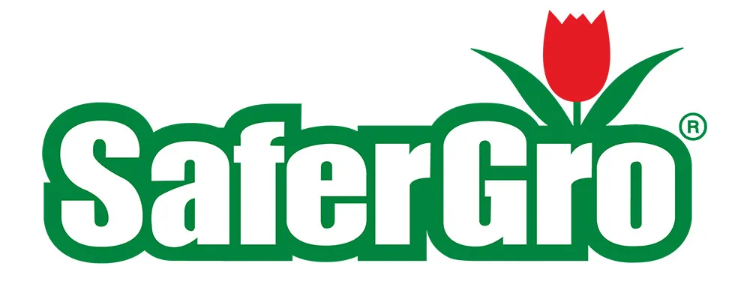Nutrients You Should Know for Your Chicken’s Best Health
Balanced diets are crucial to chicken performance and wellbeing. Nutrition is one of the most determining factors to the proper development of eggs and meat. Feed categories include energy feeds, protein, mineral, and vitamin supplements, as well as feed additives.
Energy Feed
Energy feed refers to feed that provides energy. It is the largest proportion in compound feed. This type of animal feed is mainly based in grain by-products like rice, wheat, root tuber, animal fat, corn, sorghum, barley, wheat, and oat.
Benefits of Grain
- High starch content, low fiber content, so high energy content.
- Most grains have great palatability.
- The protein content is low, and the amino acid composition is also poor.
- Phosphorus content is relatively high, but with the unavailable form of phytate.
- In addition to vitamin B2, it is also rich in water-soluble vitamins. Yellow corn contains a high amount of carotene, which can be converted into fat-soluble vitamin A for animal use and has a coloring effect.
Benefits of Adding Fat to Feed
- Increase feed energy content.
- Provide essential fatty acids.
- Improve the absorption and utilization of pigments and fat-soluble vitamins.
- Increase the palatability of feed.
- Improve feed physical property and prevent powder from flying.
- Improve the appearance of feed, increase luster, and increase the value of goods.
- Improve the production efficiency of pelleted feed.
Protein Supplement
Protein is composed of various amino acids and is very important for animal growth and development. Protein supplement sources can be divided into two categories: animal protein supplements and plant protein supplements. The two are slightly different in amino acid composition and utilization value. Commonly used protein supplements are mainly soybean meal, fish meal, and a few others. Dietary protein not only needs to provide sufficient essential amino acids but also sufficient organic nitrogen to synthesize non-essential amino acids. Poultry essential amino acids include lysine, tryptophan, threonine, methionine, isoleucine, leucine, valine, arginine, histidine, and phenylalanine. The number of essential amino acids in the diet must not only be sufficient but also must be properly balanced. The feed intake of chickens will be adjusted with changes in the metabolic energy of the diet; therefore, the protein requirement of chickens should be adjusted with the energy concentration of their diet.
Animal Protein Supplements
- Fish meal (high protein content 50-65%)
- Meat meal and bone meal (Phosphorus content below 4.4% is called meat meal; above 4.4% is called meat and bone meal.)
- Skim milk, dried (The protein belongs to milk protein, the protein content is higher than whole milk.)
- Blood meal (high protein content above 80%, high lysine content)
- Feather meal (high protein content above 80-86%, high leucine and cysteine content; It can replace part of the protein source in chicken feed, and the added amount is 2-5%.)
- Insect meal (Hermetia illucens, Tenebrio molitor, Cicada pupa, etc. of source.)
- Soybean meal (The amino acid composition lacks methionine.)
- Cotton seed meal (protein content 30-45%)
- Rape seed meal (protein content 36-38%)
- Palm kernel meal (protein content 8.8-17%)

Mineral Supplements
Each mineral has a special function in the animal's body that any lacking of would have adverse effects. Because of this it is necessary to supplement any deficiencies. The minerals with high requirements in animals are called macro minerals, including sodium, chlorine, calcium, phosphorus, potassium, magnesium, and sulfur. Those with low level required minerals are called micro minerals which include copper, iron, zinc, manganese, cobalt, iodine, and selenium.
Things to Consider When Selecting Trace Minerals
- Bioavailability and stability.
- Whether it contains toxic substances.
- Whether its physical properties are easy to handle and mix.
- Reliability of source and consistency of quality.
- Economy, that is, the price per unit of titer.
Vitamin Supplement
Vitamins have a great effect on the physiological condition of the whole body. After the vitamin enters the body, it can be directly absorbed into the tissues and used without digestion. Vitamins are very important for growth, reproduction, and other functions that also relate to maintaining health and vitality.
Vitamins are divided into fat-soluble vitamins and water-soluble vitamins. Fat-soluble vitamins can be stored in the tissues and organs of the body; however, water-soluble vitamins are less easy to store in the body and need to be obtained by daily intake. The former includes vitamins A, D, E, and K. The latter includes vitamins B1, B2, B6, B12, pantothenic acid, niacin, biotin, choline, folic acid, and vitamin C. Generally, it is not necessary to add vitamins to feed because the body tissues of chickens can synthesize vitamin C. However, when chickens encounter urgent or infected diseases, the amount of vitamin C synthesized in the body is insufficient, so additional vitamin C should be added.
Feed Additives
Feed additives refer to substances used as additions to improve feed effectiveness, maintain feed quality, maintain health, and increase the performance of livestock, poultry, and aquatic animals.
Types of Feed Additives
- Added to increase feed utilization efficiency. (E.g. enzymes, probiotics, spice, emulsifying agent, and cohesive material)
- Added to promote growth. (E.g. phytogenic, essential oil , organic arsenic, and others)
- Added for antiparasitic. (E.g. anticoccidial agent, anti-leucocytozoon agen, and others)
- Added to maintain feed quality. (E.g. fungicide and antioxidant)
These are the main categories of essential nutrients your animals require. It is important to provide sufficient nutrients for optimal growth and health. Of course, there are a lot more details than this and each category can be a field of expertise. Stay updated with our blog for more information on how to keep you chickens healthy and productive.
Share
